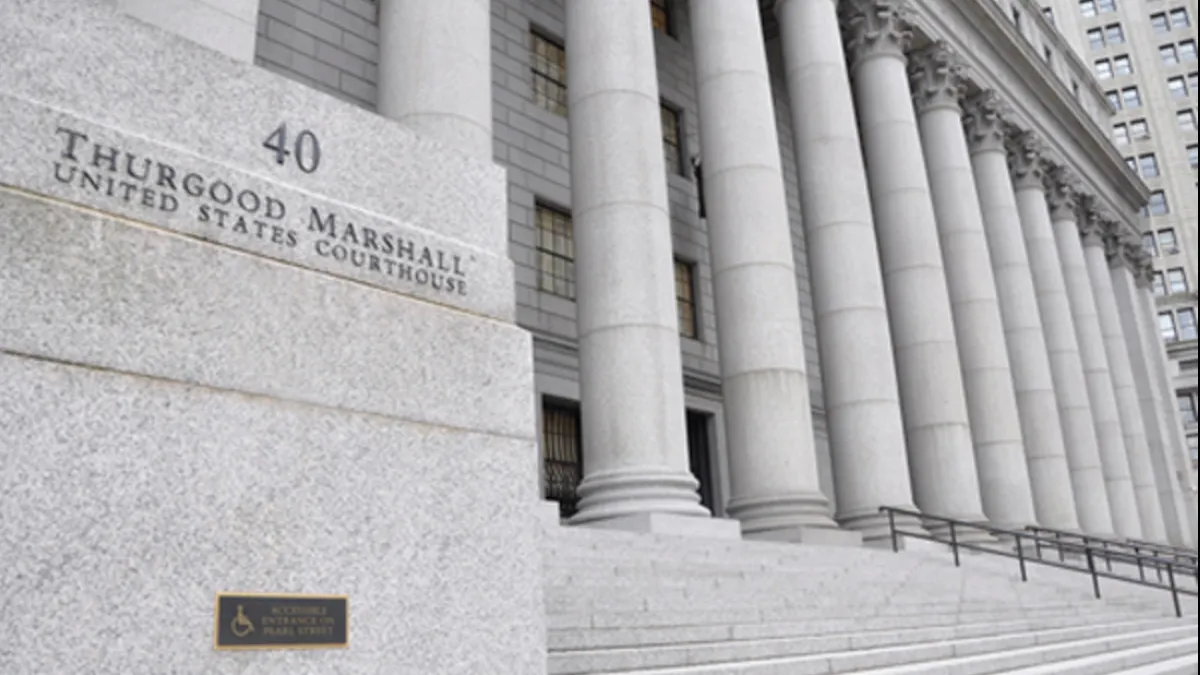Dive Brief:
- The U.S. Court of Appeals for the 2nd Circuit said Title VII of the 1964 Civil Rights Act doesn’t cover discrimination based on sexual orientation, reports the Employer Handbook Blog. However, the three- judge panel did agree that sex stereotyping does violate the law.
- The ruling in Christiansen v. Omnicom Group, Inc. is similar to the court’s decision in a 2000 case, Simonton v. Runyon, and the 11th Circuit Court’s recent conclusion in Evans v. Georgia Regional Hospital.
- Next, the 7th Circuit Court will decide another sexual orientation case, Hively v. Ivy Tech Community College.
Dive Insight:
The 11th and 2nd circuit courts’ decisions run counter to the Equal Employment Opportunity Commission’s stand that Title VII prohibits sexual orientation bias. The EEOC says it will enforce the law as the agency interprets it, which has brought some challenge from SHRM and CUPA-HR, who believe the language of such enforcement needs to clarify Title VII's actual stance.
The U.S. Court of Appeals for the 7th Circuit is rehearing arguments in a similar sex discrimination case — a rare court occurrence, and one of the last cases on this issue yet to have a ruling made. If a different ruling is made in that case, it could push the issue to the Supreme Court.
But a ruling like the 11th and 2nd circuit courts’ decisions doesn’t mean discrimination claims based on sexual orientation should be ignored. State laws could be a factor, depending on employer location, and generally it's always a good idea to follow best practices when it comes to discrimination policies. Employers need workplace policies that protect all workers from discrimination, along with reporting and enforcement procedures.














